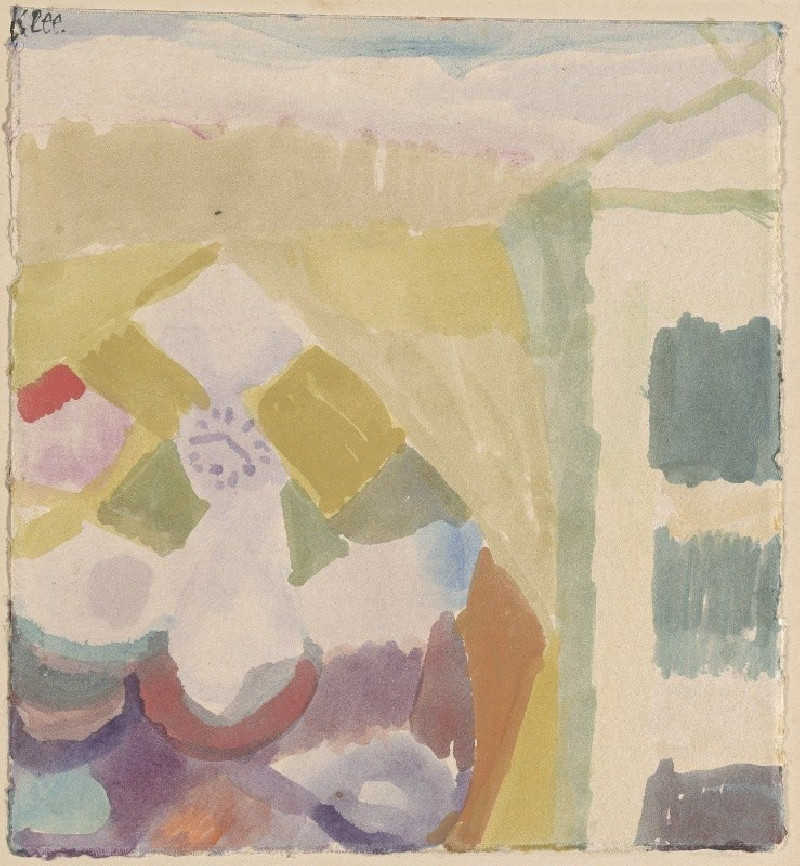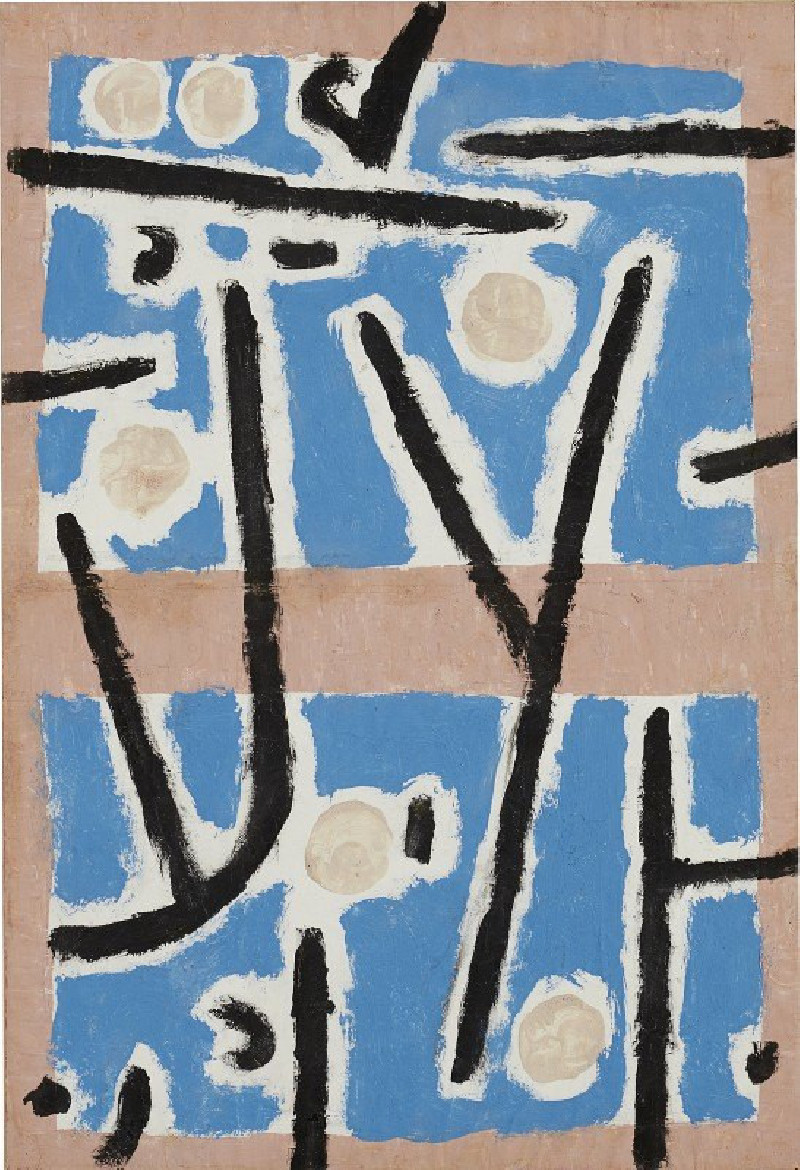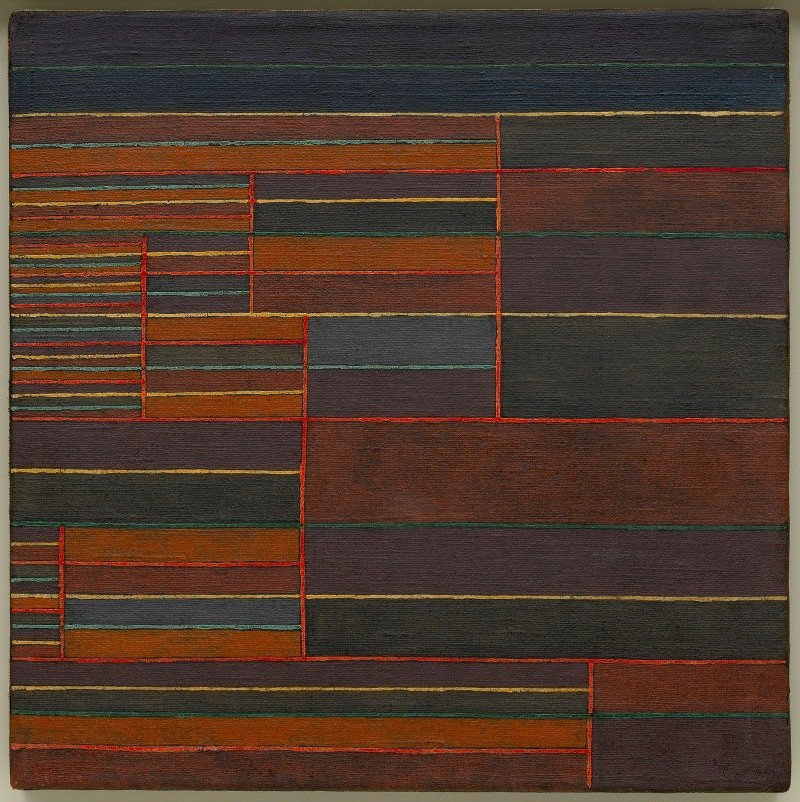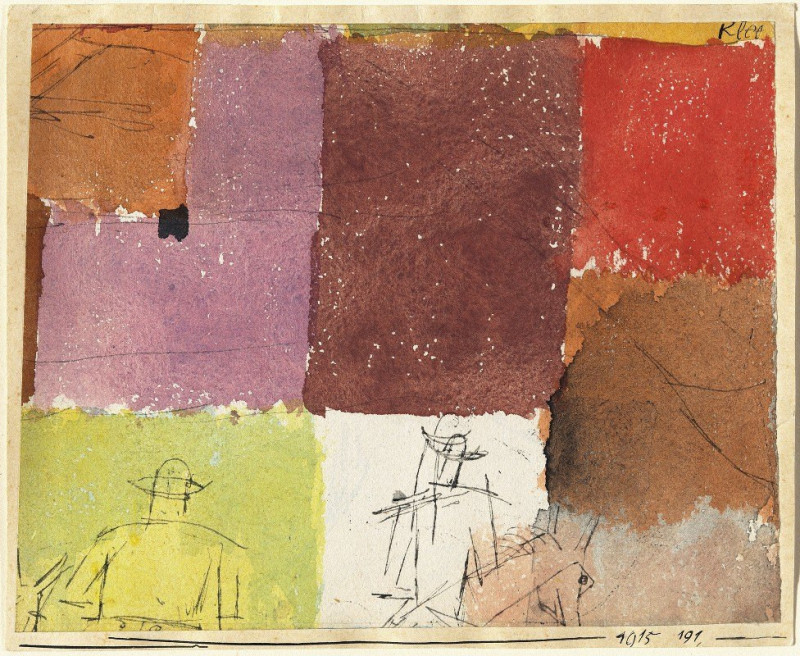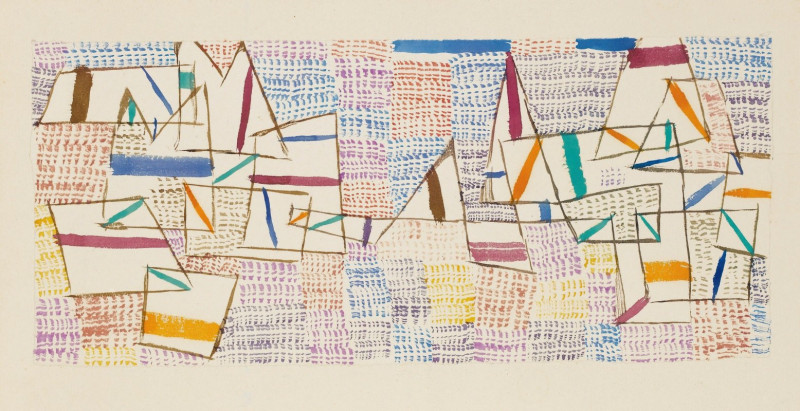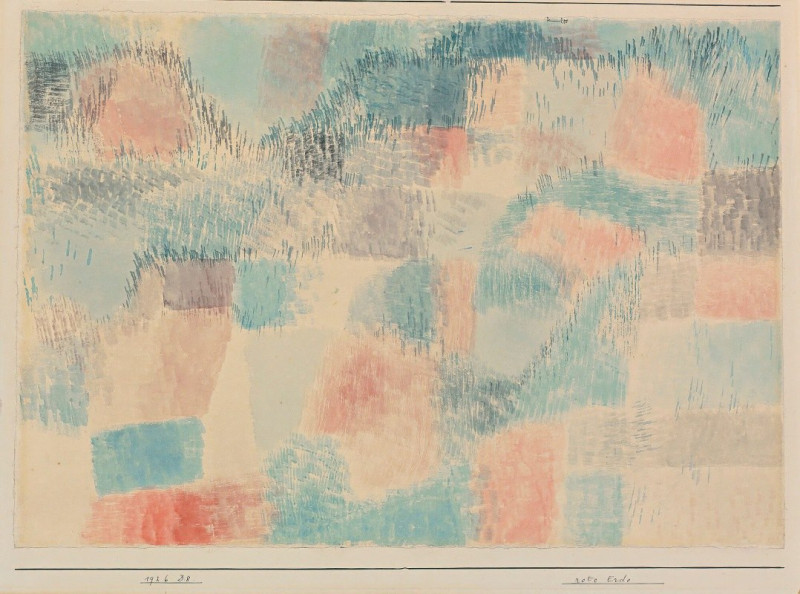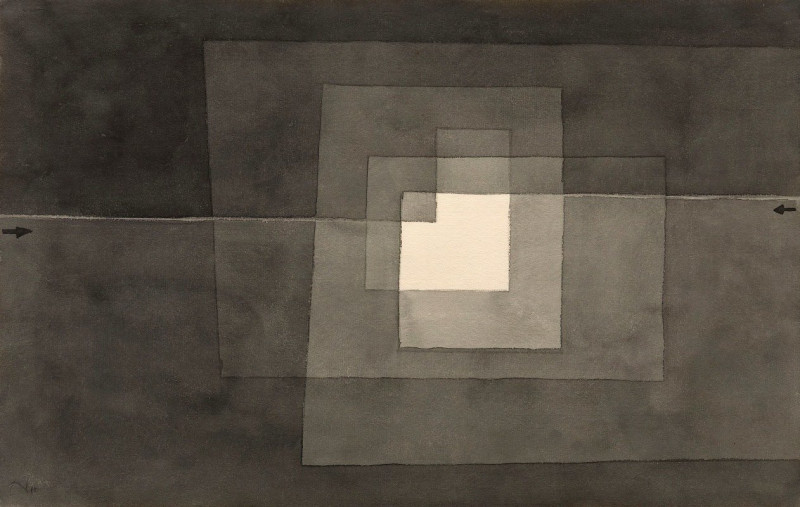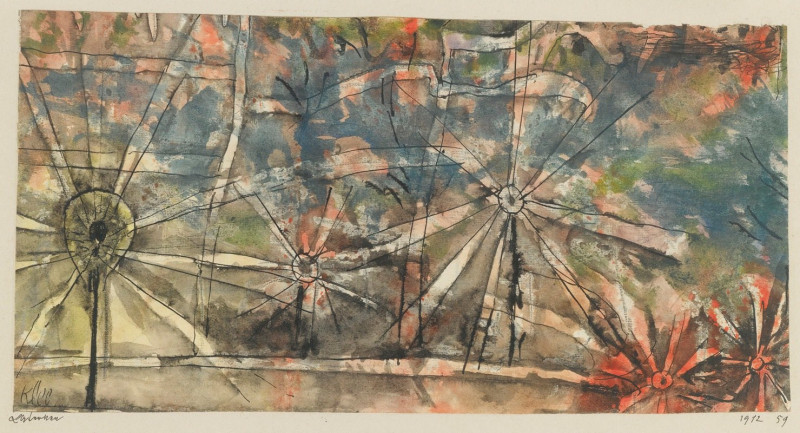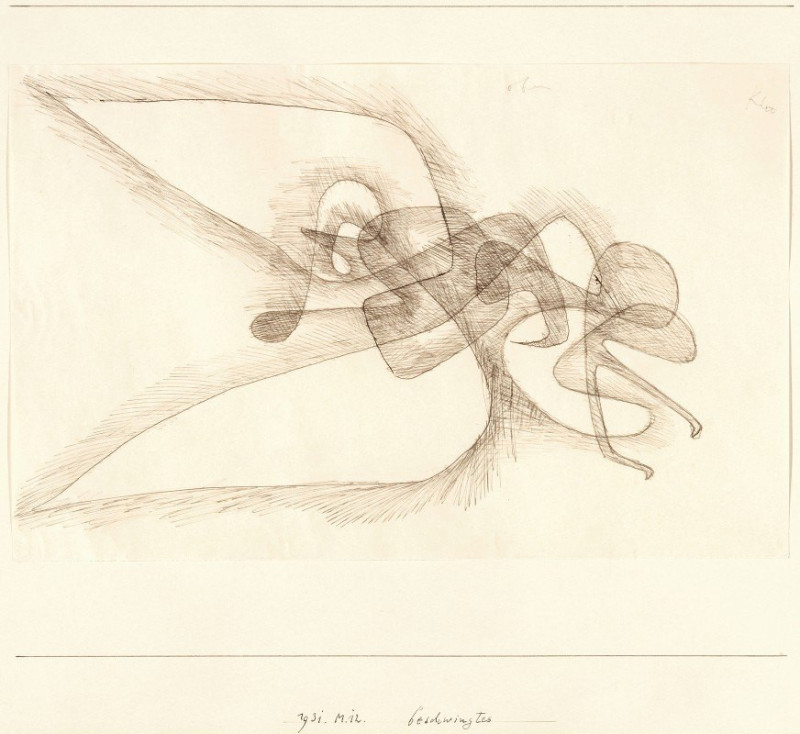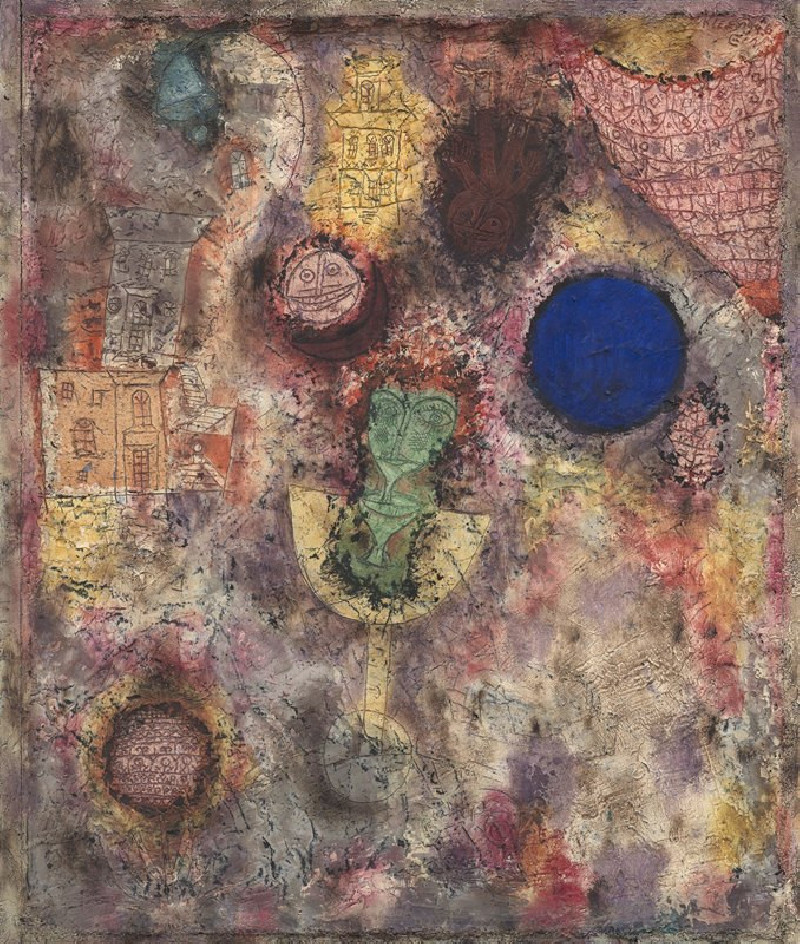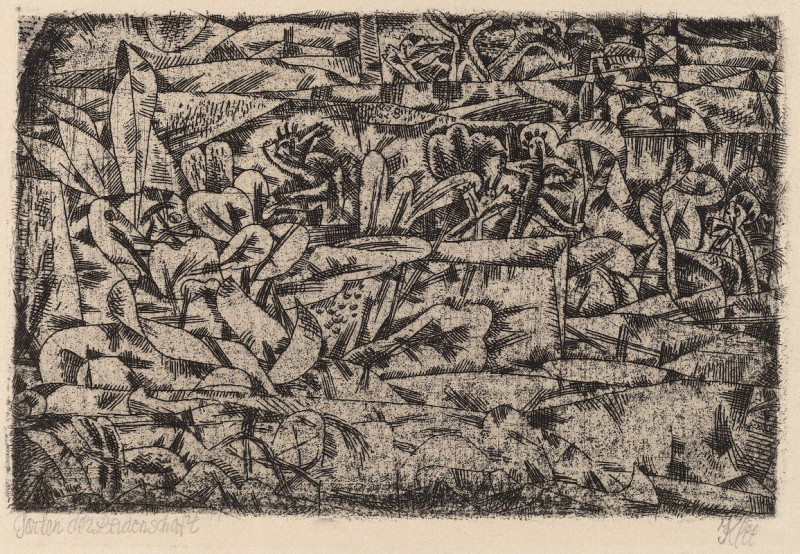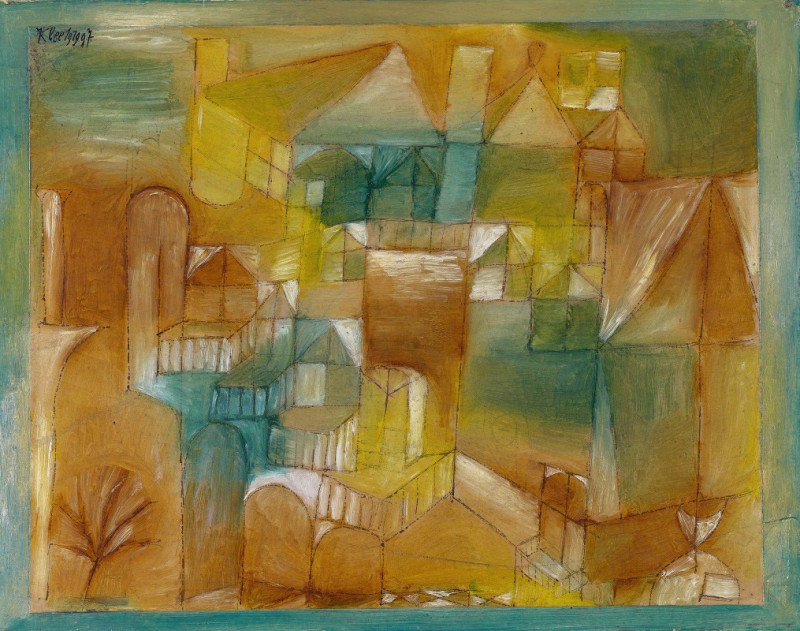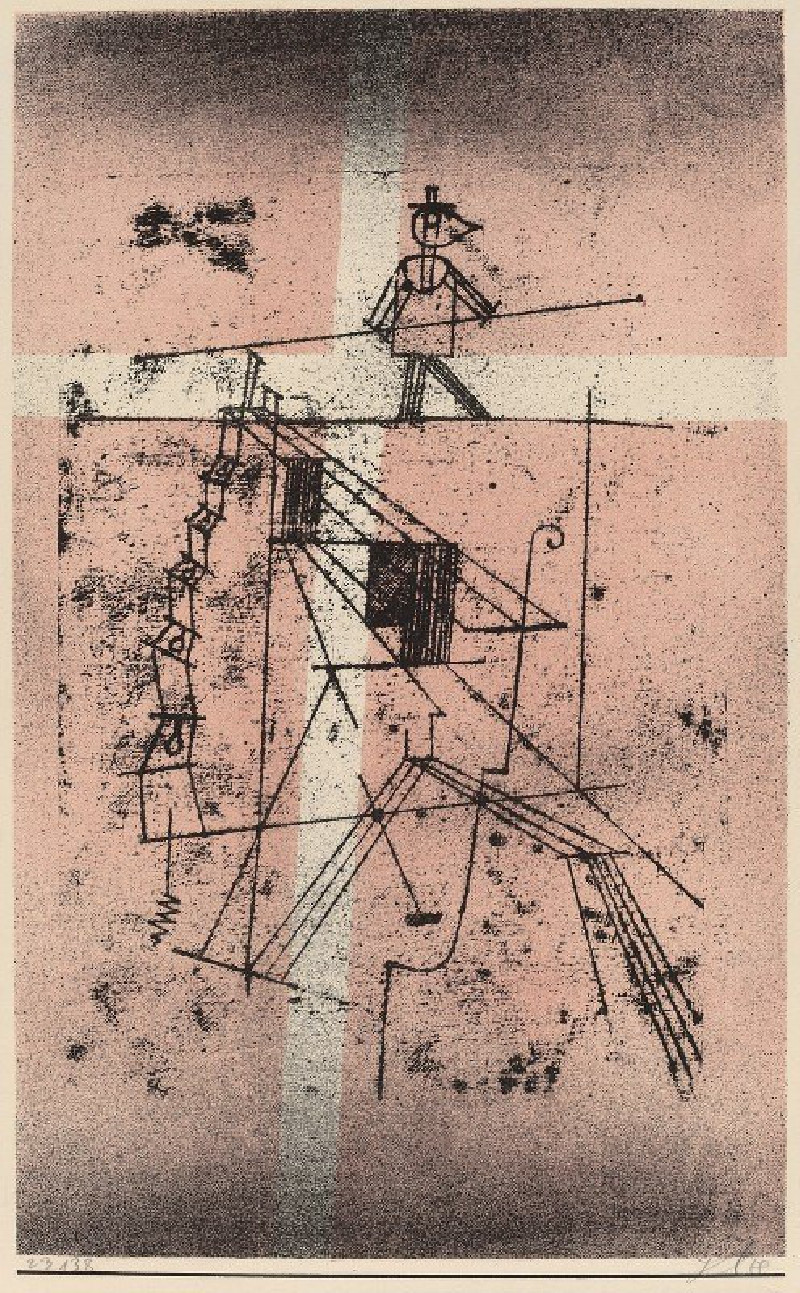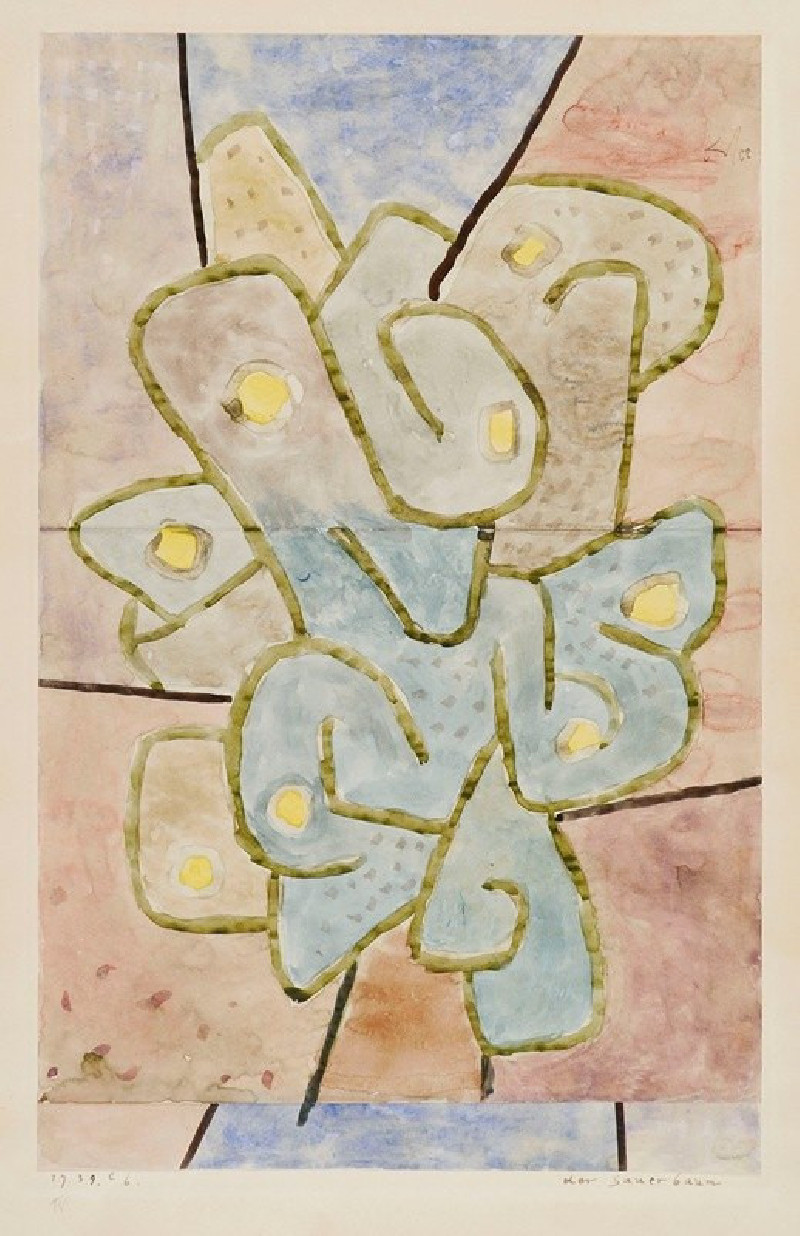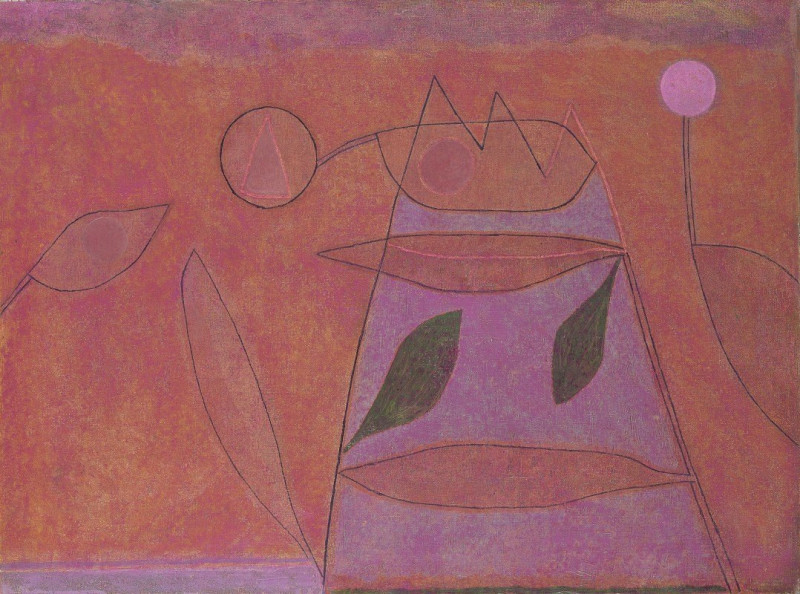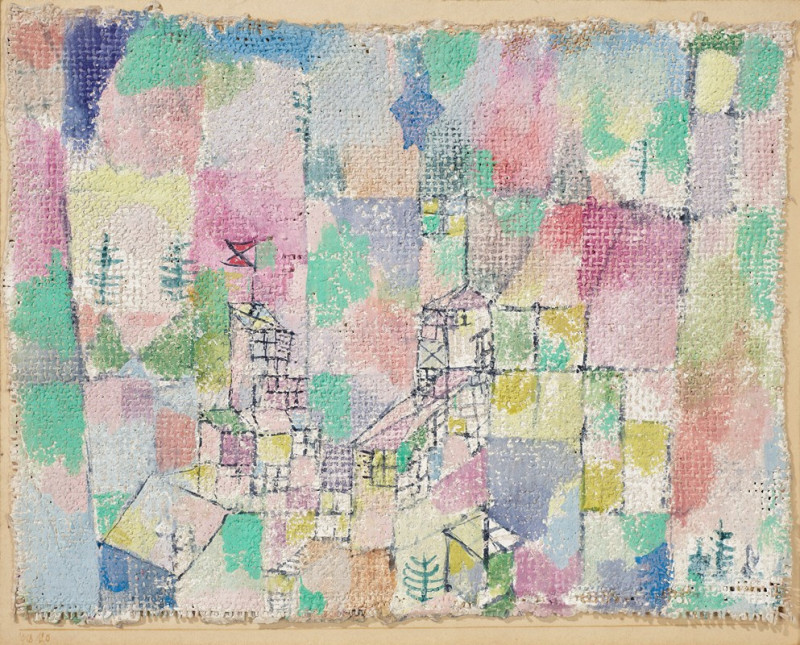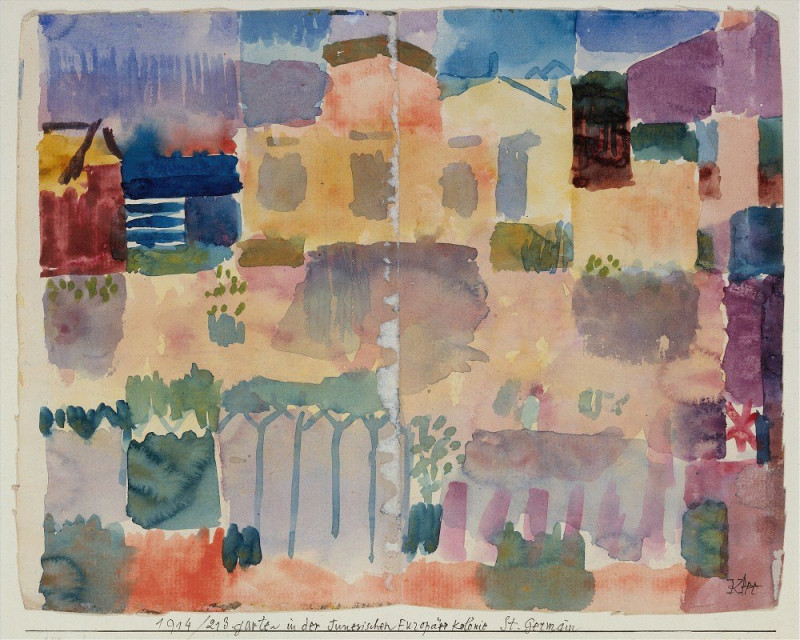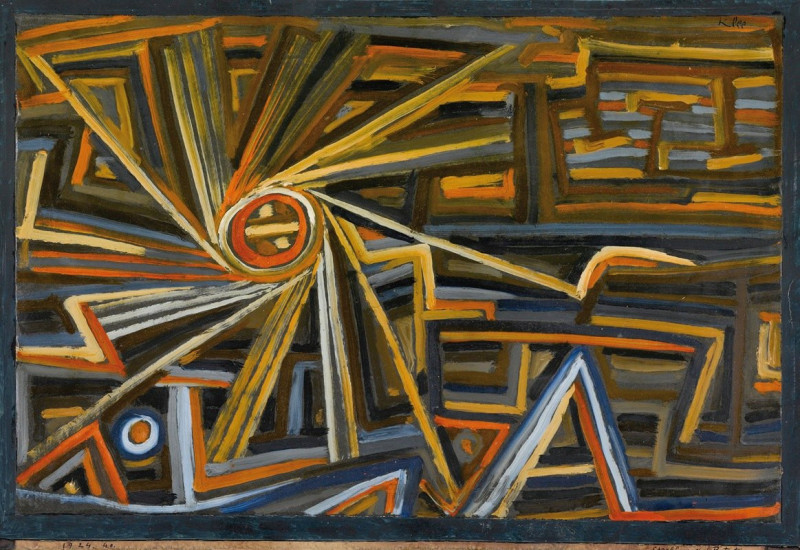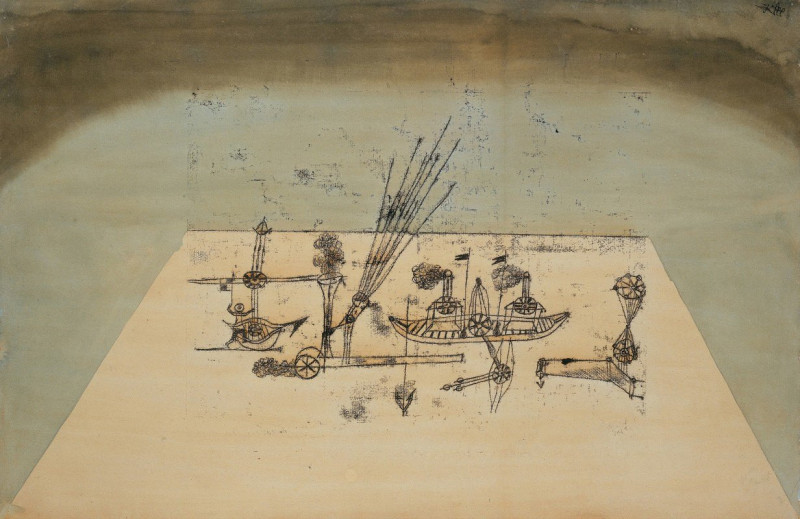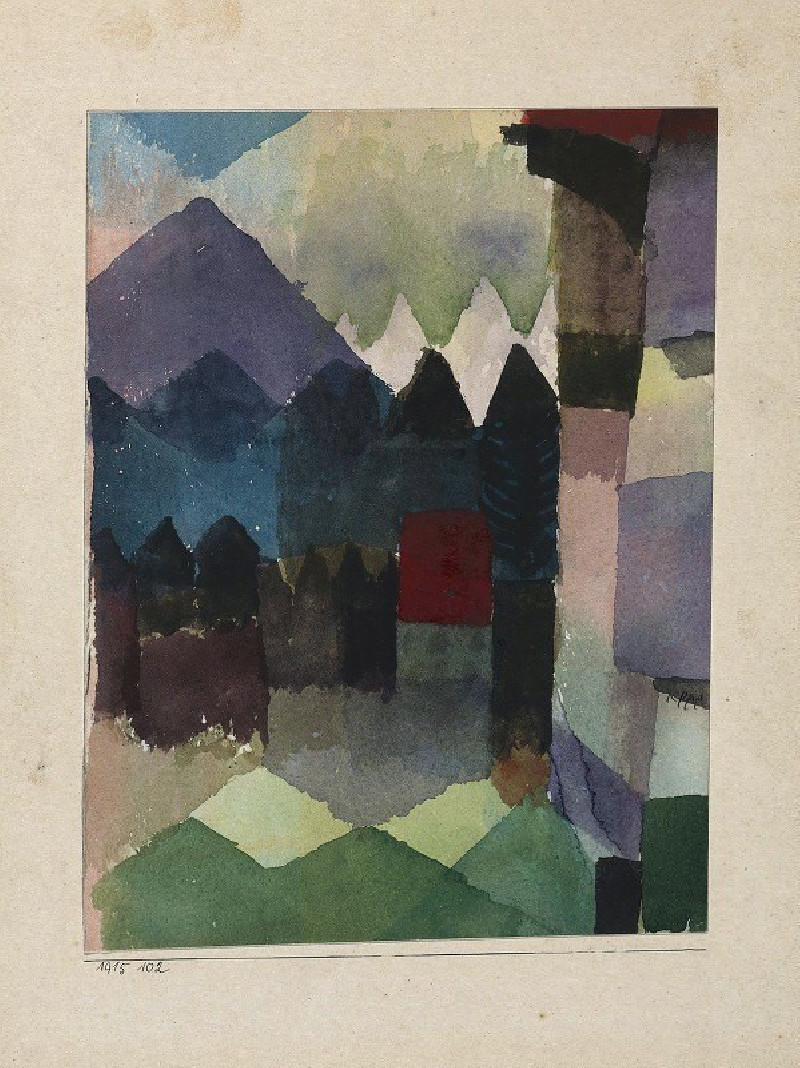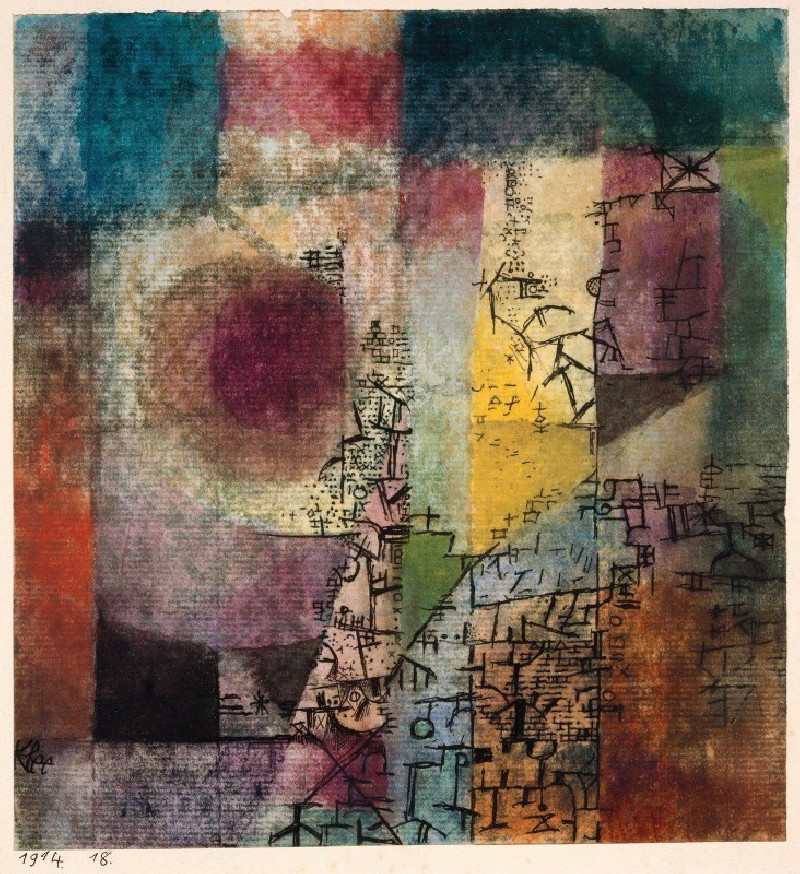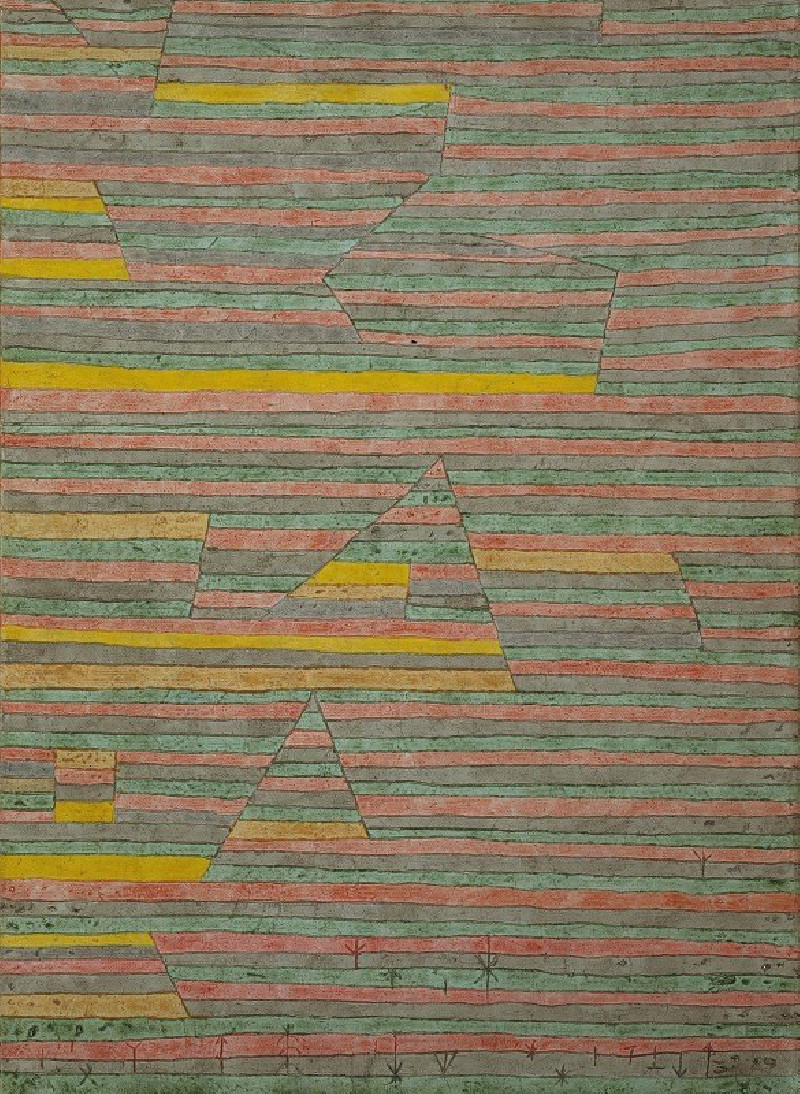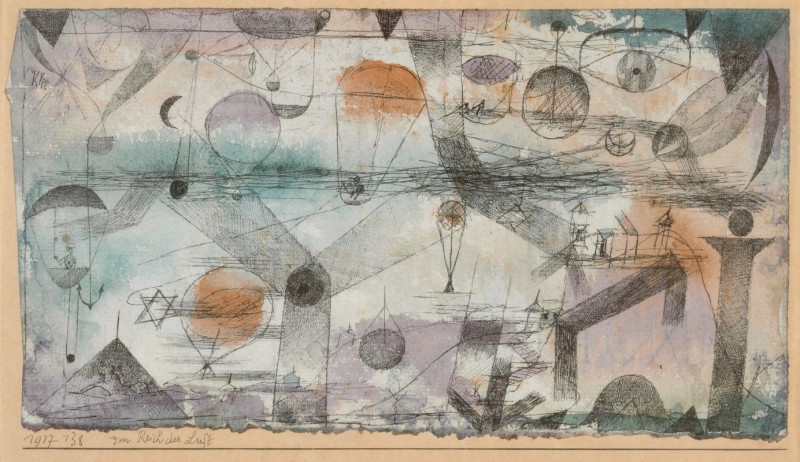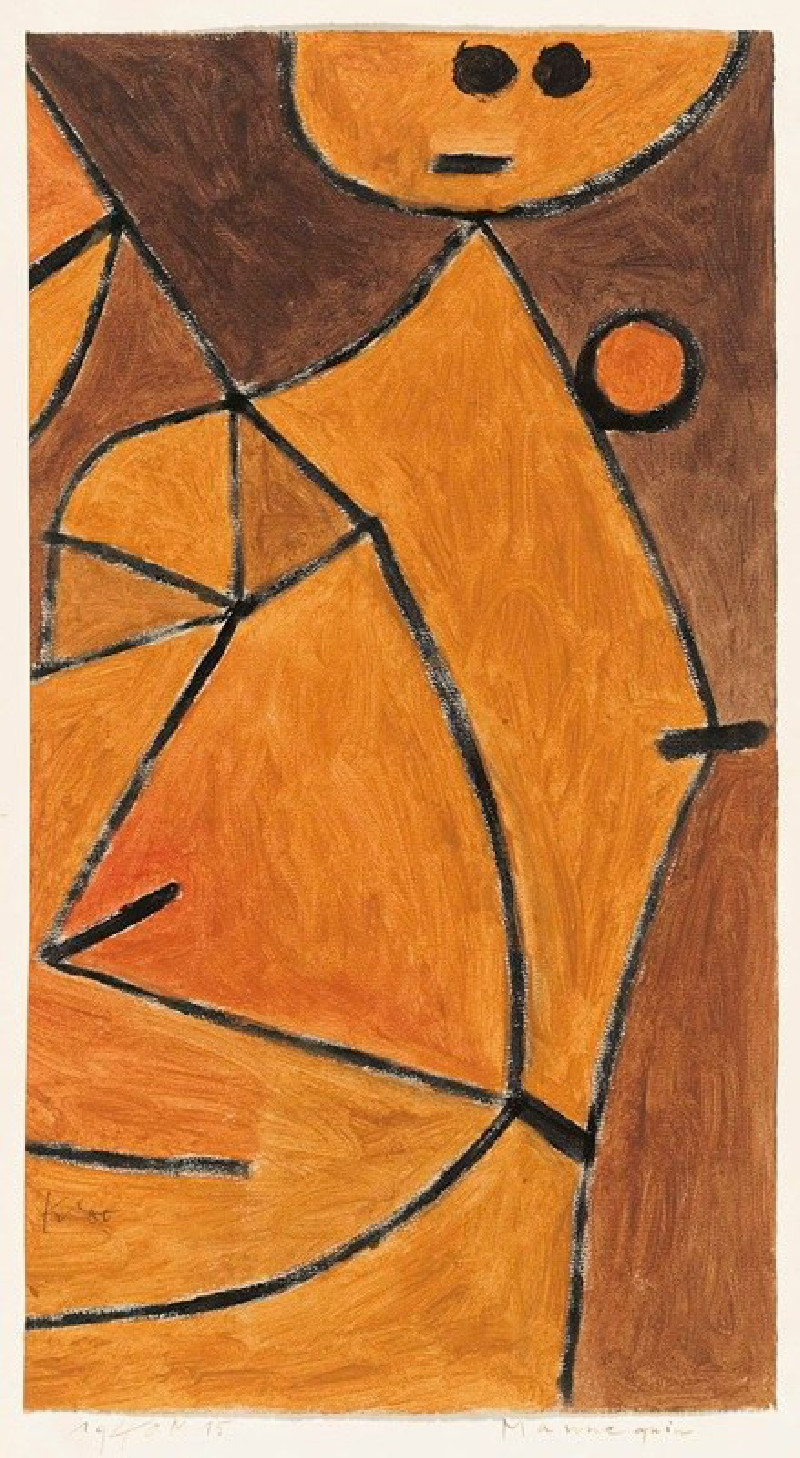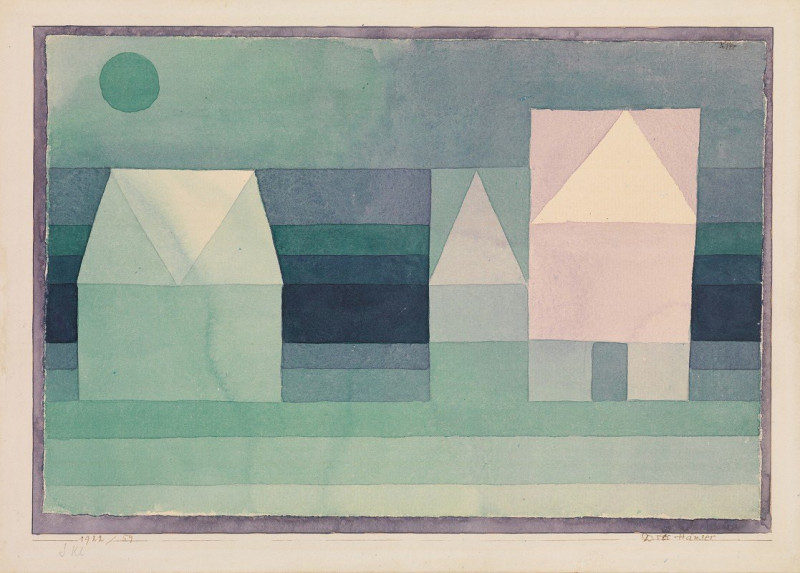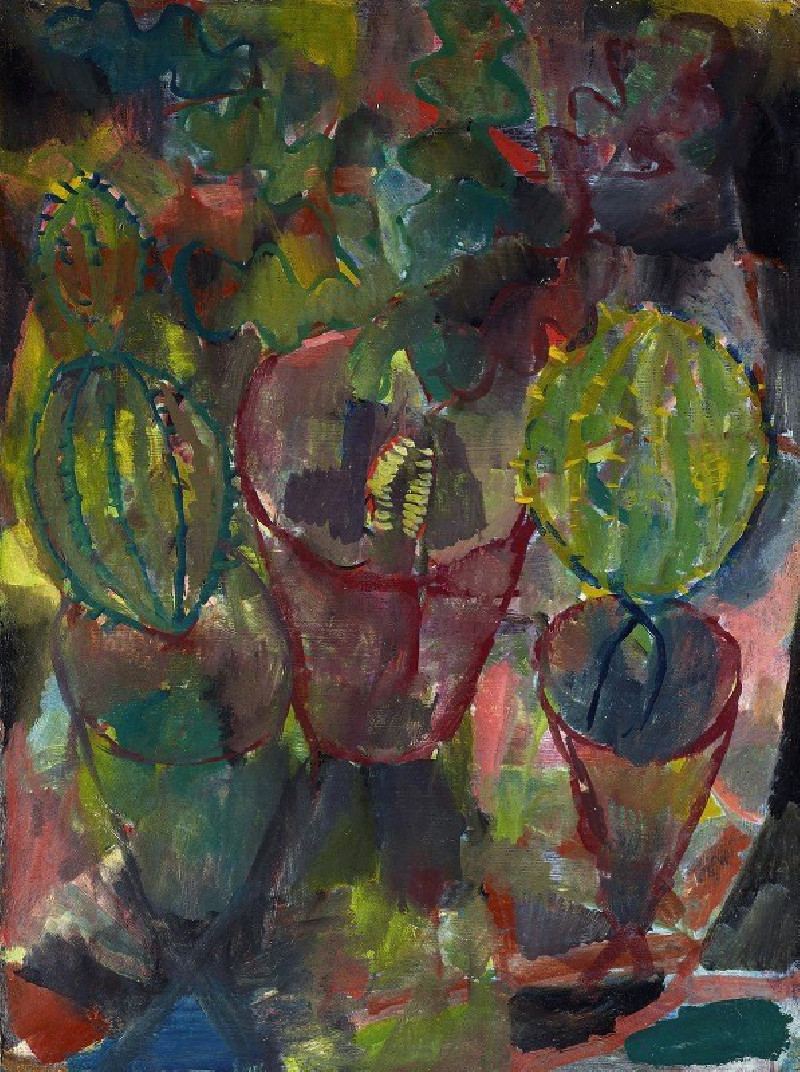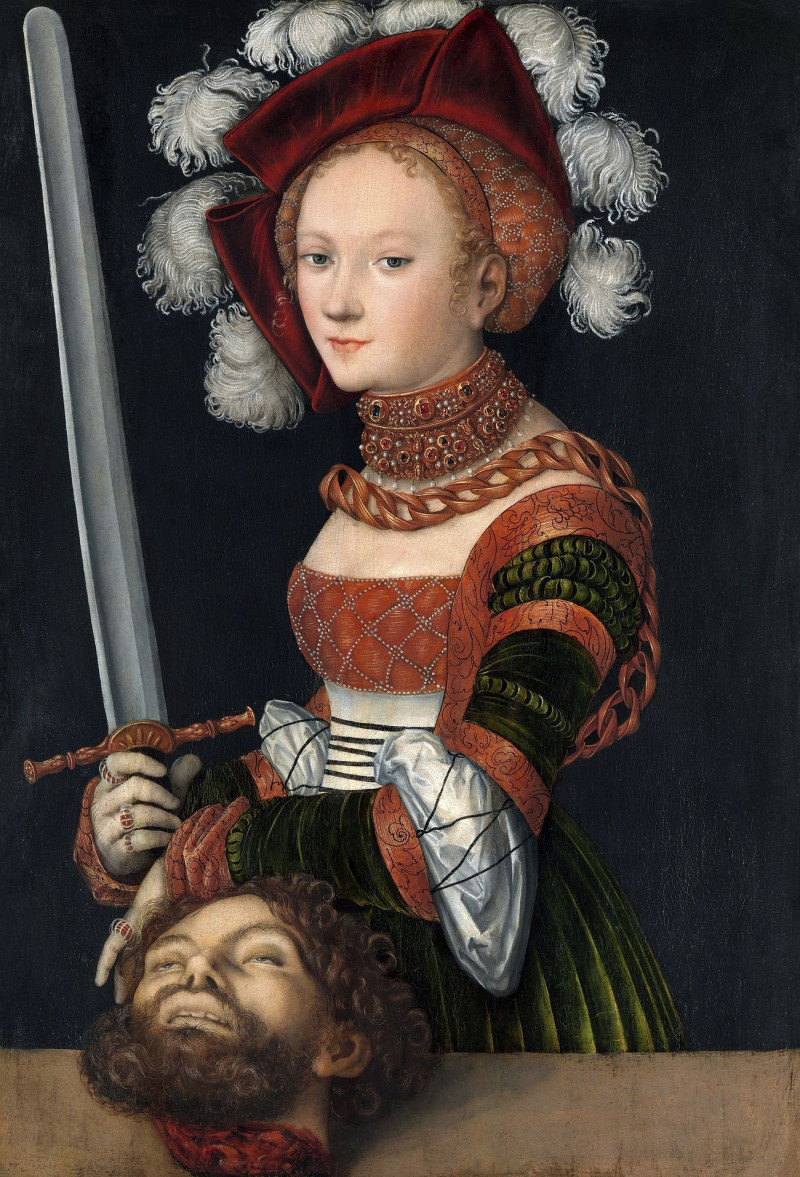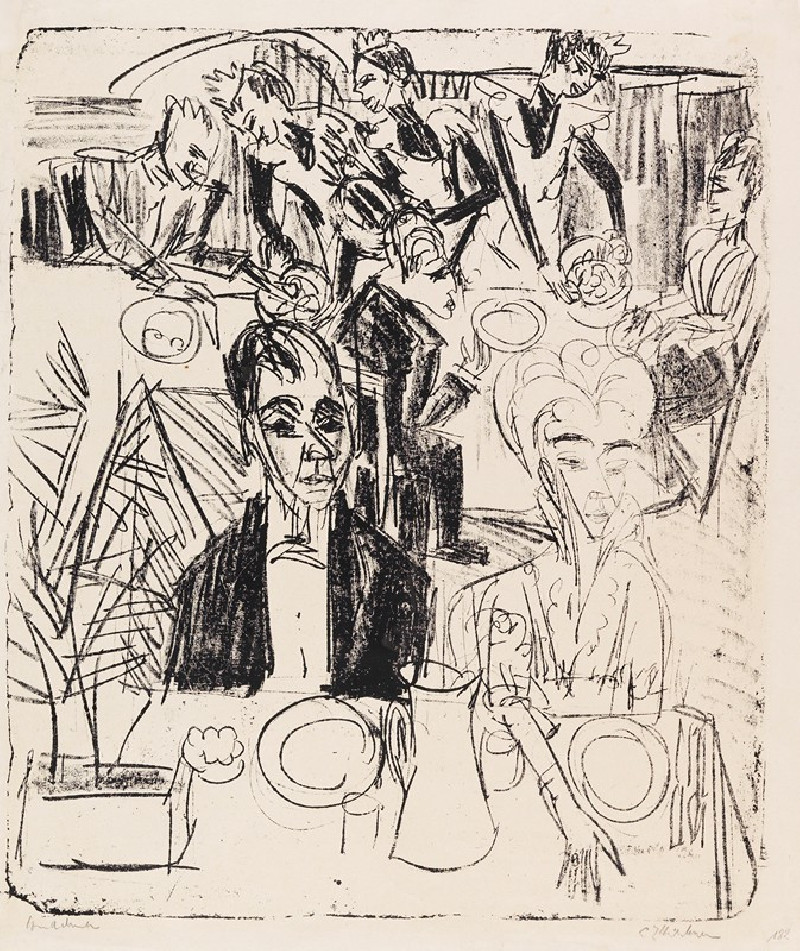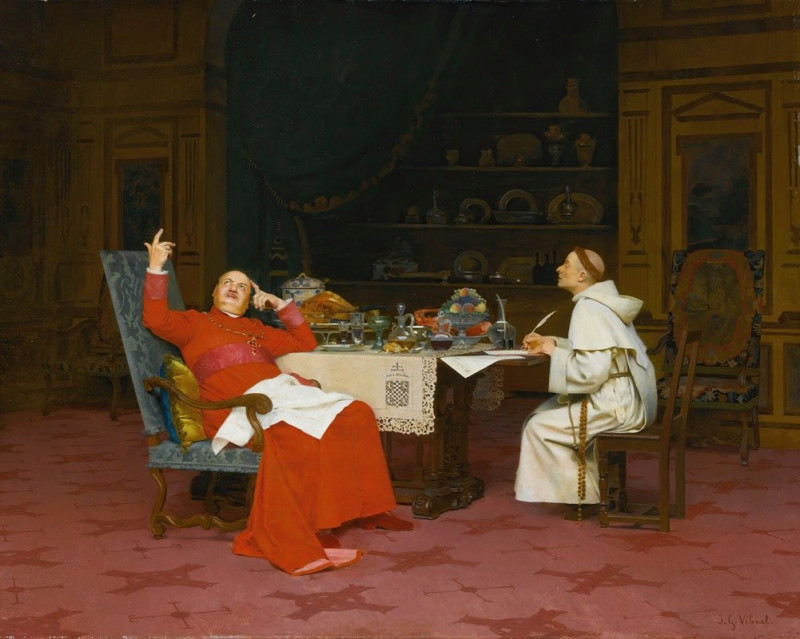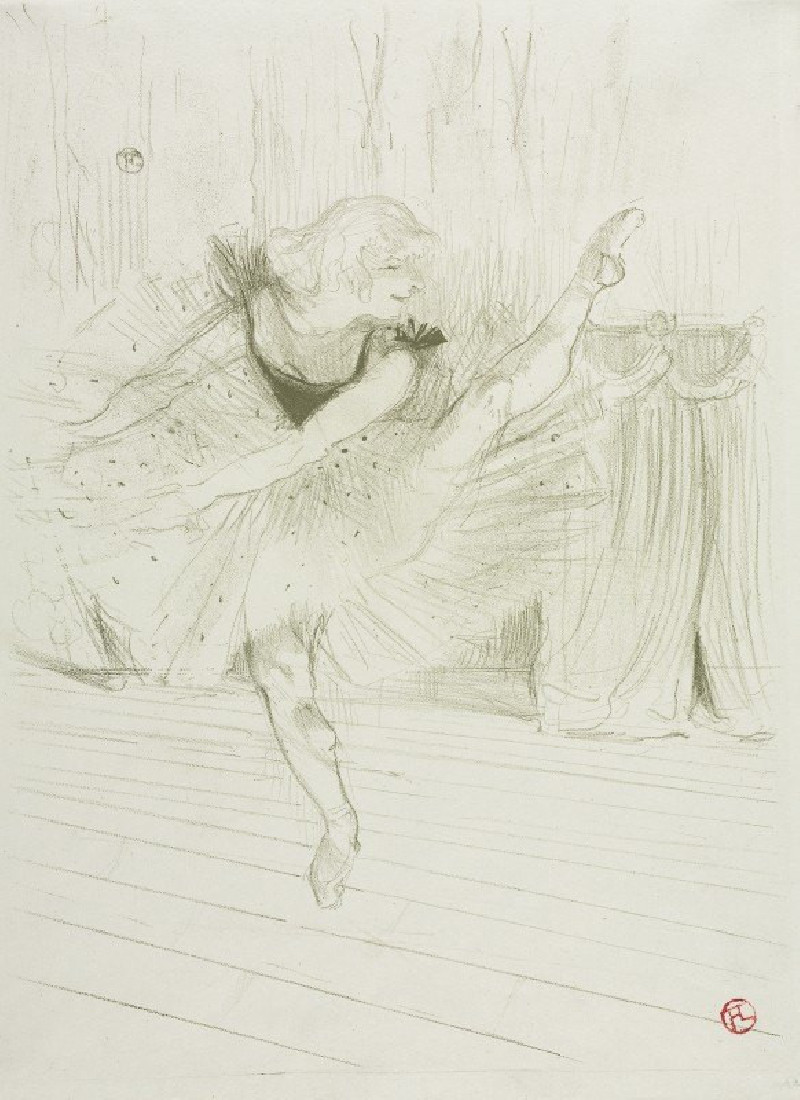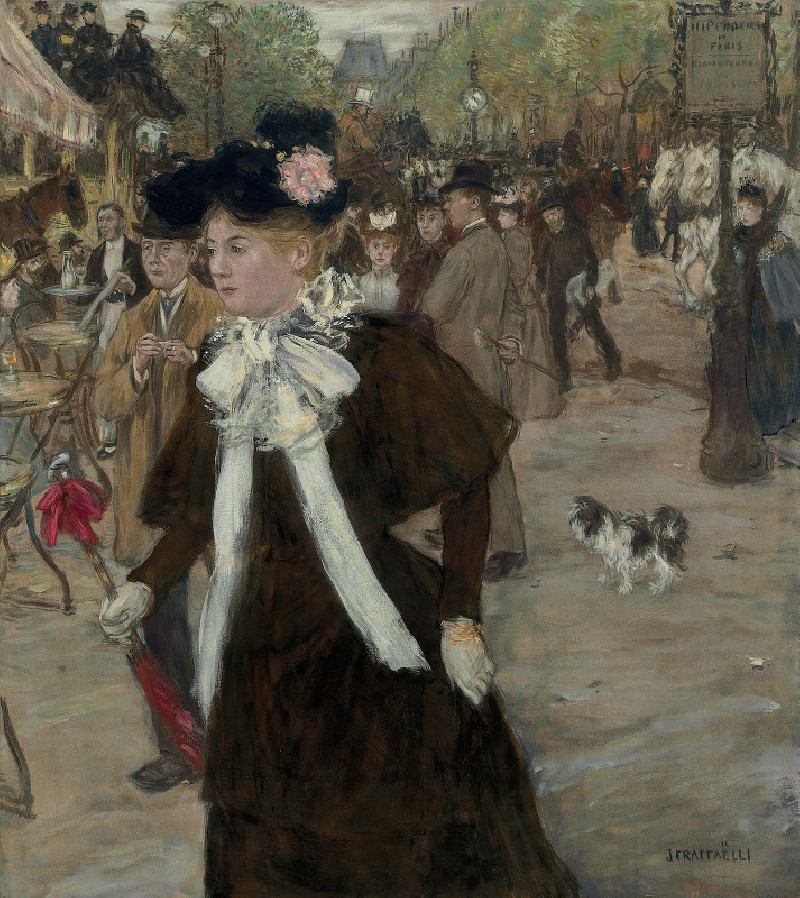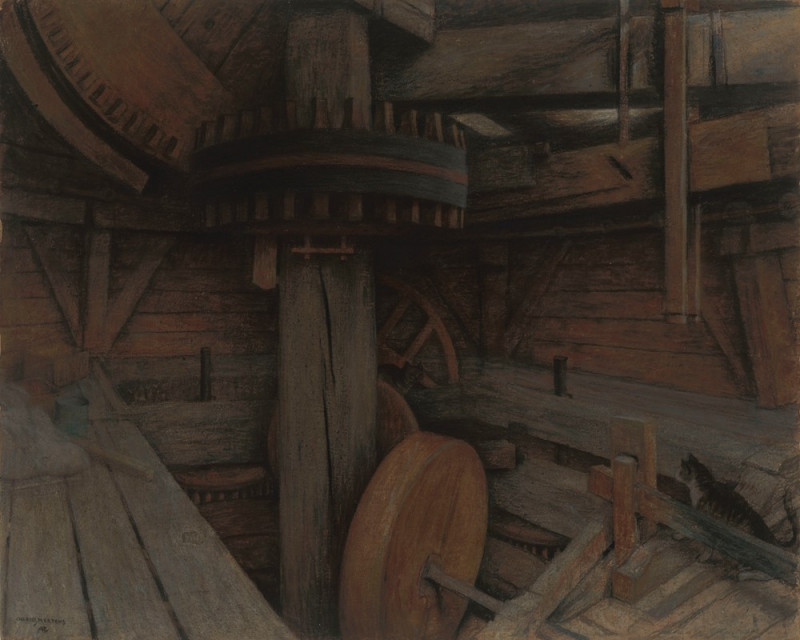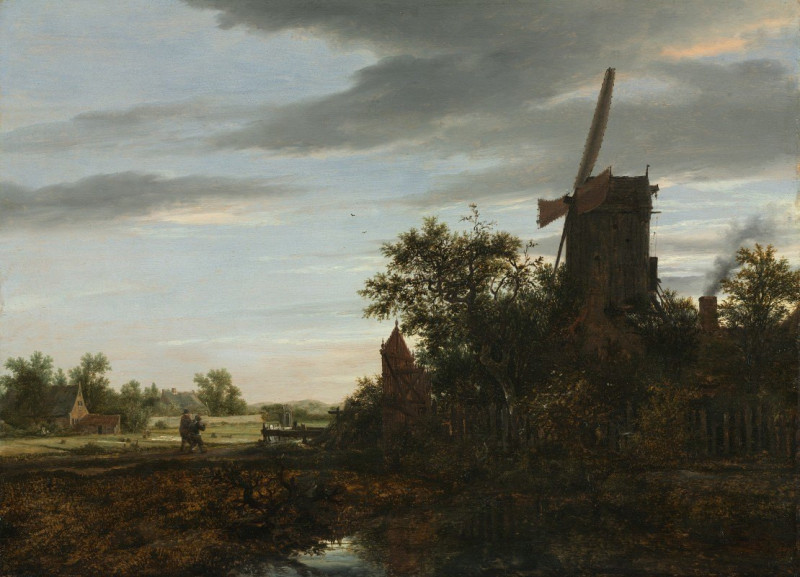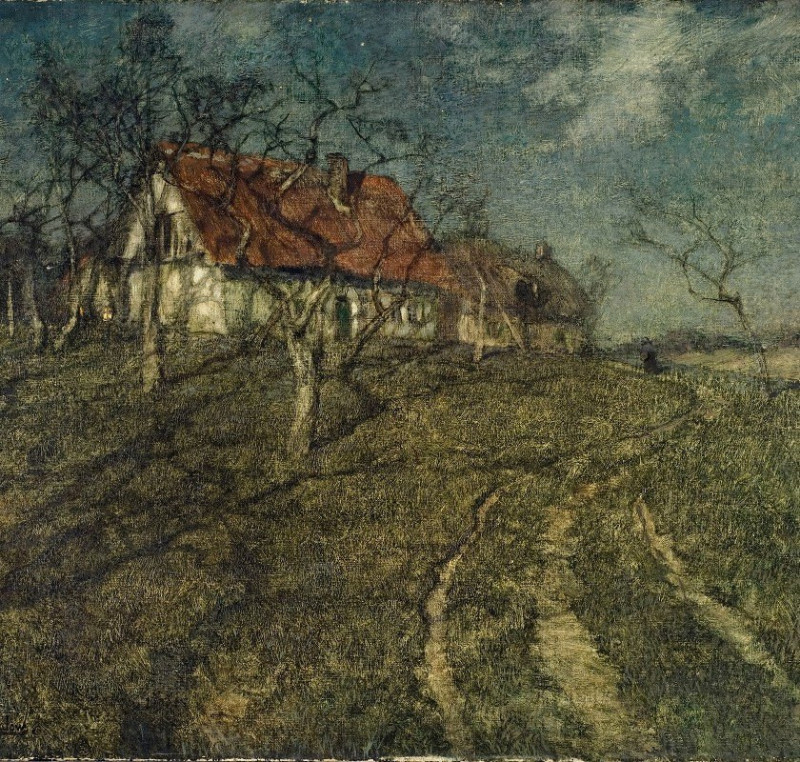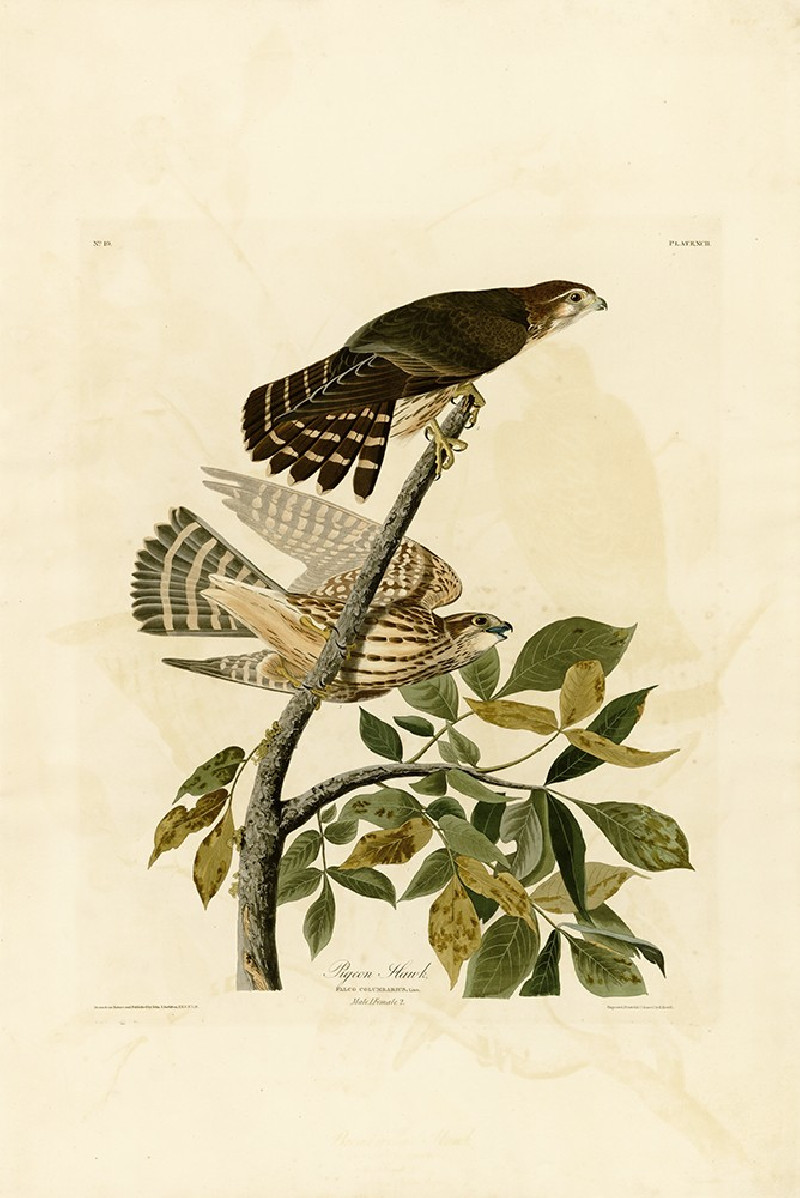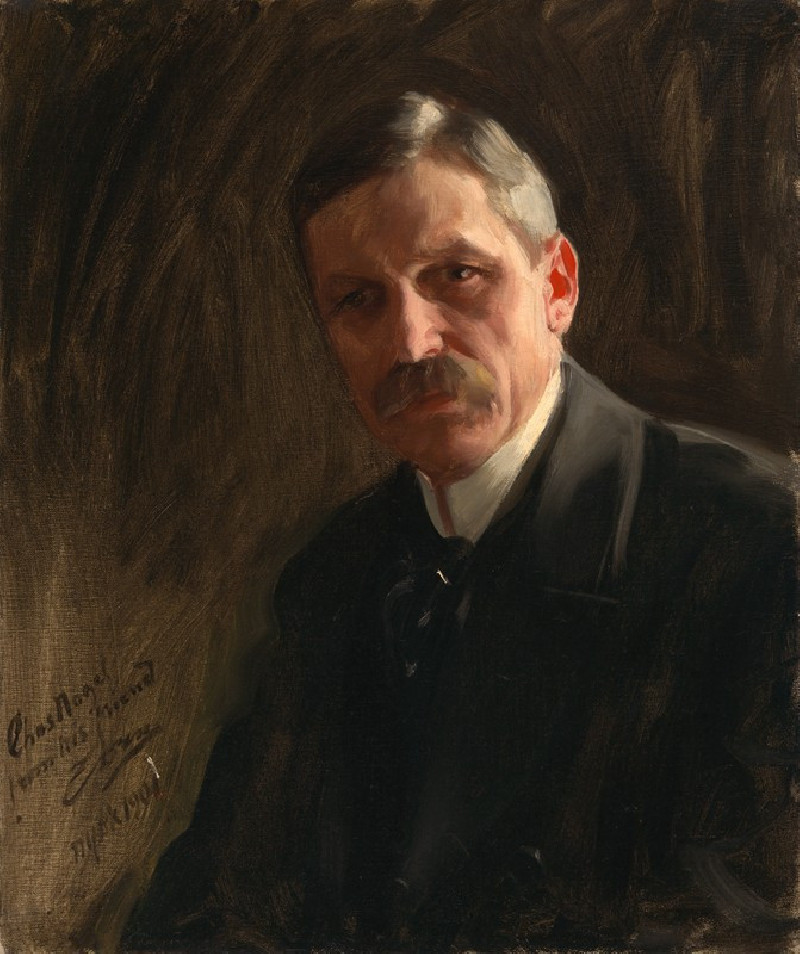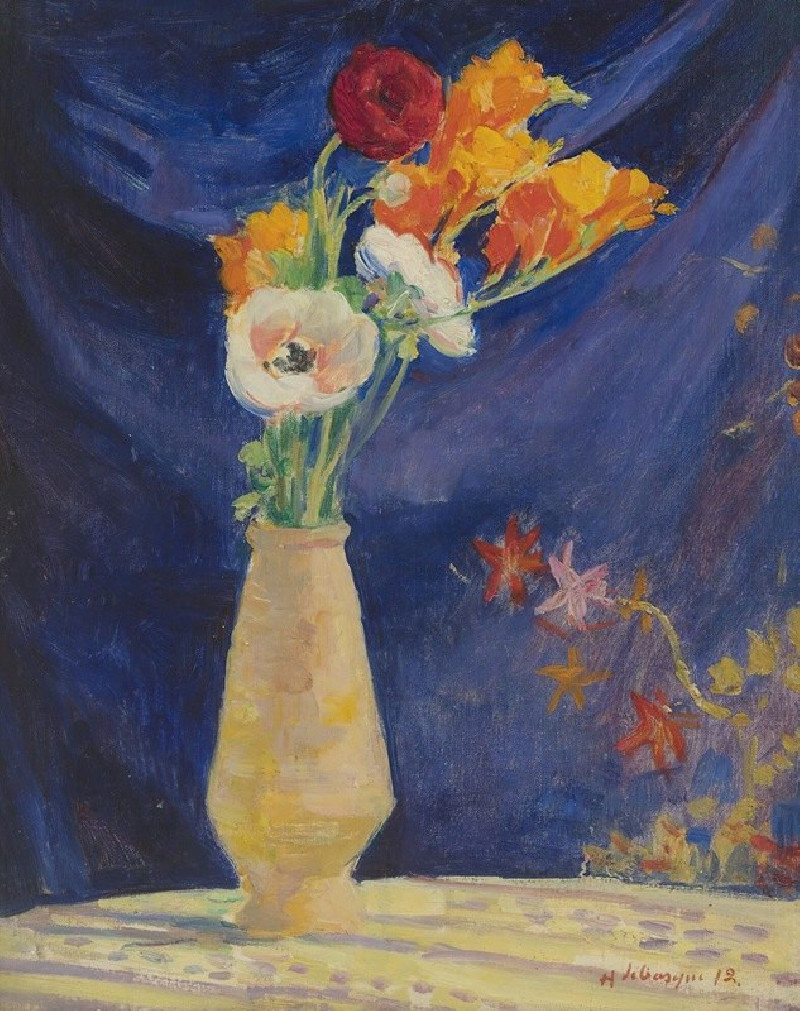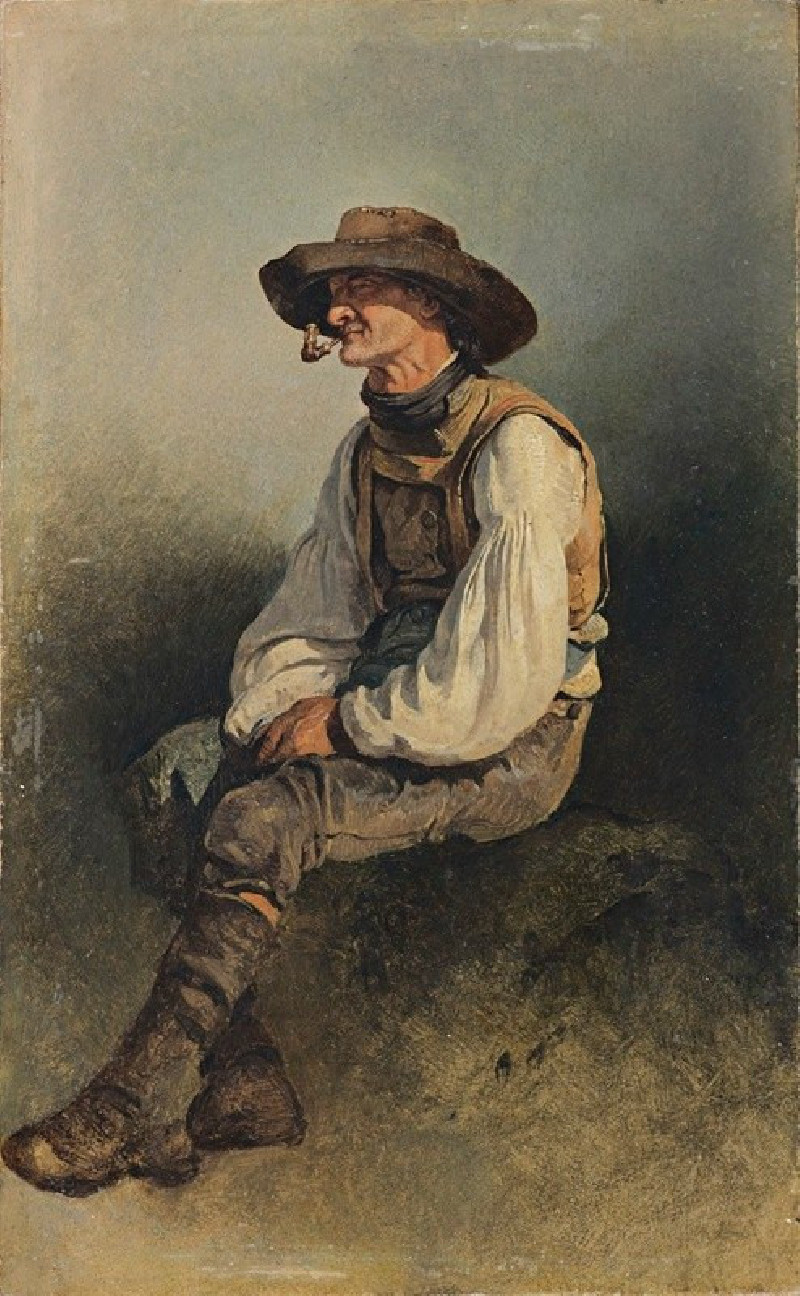Interieur mit der Uhr (Interior with the Clock) (1913)
Technique: Giclée quality print
Recommended by our customers
More about this artwork
Titled "Interieur mit der Uhr" (Interior with the Clock) by the renowned artist Paul Klee, this painting from 1913 is a fine example of Klee's unique expressionist style. This watercolor artwork combines abstract elements with subtle hints of realism to create a dreamlike domestic scene. The clock, a central motif in this composition, suggests themes of time and introspection.The painting employs a palette of soft pastels, where various shades of yellows, blues, and greens interlace subtly, blurring the lines between the tangible elements of the room and the metaphysical reflections they may symbolize. The representation of the clock, while abstract, anchors the artwork in the everyday, contrasting with the more fluid, undefined shapes and colors surrounding it. This juxtaposition invites viewers to contemplate the passage of time within the seemingly static yet dynamically rendered environment.Klee's mastery in balancing color and form results in a composition that is both harmonious and intriguing, encouraging a thoughtful engagement with the aspects of time and space within one's own surroundings.
Delivery
Returns
Paul Klee was a Swiss-born German artist. His highly individual style was influenced by movements in art that included expressionism, cubism, and surrealism. Klee was a natural draftsman who experimented with and eventually deeply explored color theory, writing about it extensively; his lectures Writings on Form and Design Theory (Schriften zur Form und Gestaltungslehre), published in English as the Paul Klee Notebooks, are held to be as important for modern art as Leonardo da Vinci's A Treatise on Painting for the Renaissance.

